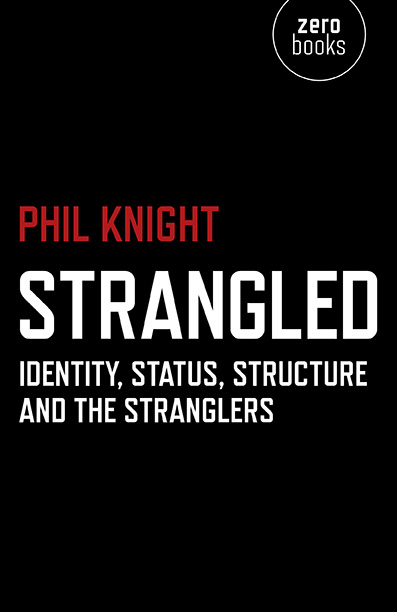Strangled
If the Sex Pistols and The Clash represented punk's sacred, then The Stranglers were its profane. Strangled sets out to explain why discussion of this most taboo of bands has for so long been silenced-a collective cultural Omerta.

If the Sex Pistols and The Clash represented punk's sacred, then The Stranglers were its profane. Strangled sets out to explain why discussion of this most taboo of bands has for so long been silenced-a collective cultural Omerta.
If the Sex Pistols and The Clash represented punk's sacred, then The Stranglers were its profane. Strangled sets out to explain why discussion of this most taboo of bands has for so long been silenced-a collective cultural Omerta.
History & criticism, Music (general), Punk
The Stranglers occupy a paradoxical position within the history of popular music. Although major artists within the punk and new-wave movements, their contribution to those genres has been effectively quarantined by subsequent critical and historical analyses. They are somehow "outside" the realm of what responsible accounts of the period consider to be worthy of chronicling.
Why is this so? Certainly The Stranglers' seedy and intimidating demeanor, and well-deserved reputation for misogyny and violence, offer a superficial explanation for their cultural excommunication. However, this landmark work suggests that the unsettling aura that permeated the group and their music had much more profound origins; ones that continue to have disturbing implications even today. The Stranglers, it argues, continue to be marginalised because, whether by accident or design, they brought to the fore the underlying issues of identity, status and structure that must by necessity be hidden from society's conscious awareness.
For this, they would not be forgiven.
Click on the circles below to see more reviews
The precarious existence in a band is vividly described in this book from independent British publisher Zero Books. ~ Gesellschaft + Kultur, May 2015
I finished STRANGLED at three o'clock this morning. Best book, in any genre, I've read in years. A brilliantly unique dissection of postwar Western decline and ... somehow it contains my favourite band, too. Genius. ~ Alison Rae, Managing Editor, Polygon Books
One of the most brilliantly unusual brains to emerge from the blogosphere lovingly dissects one of the most brilliantly unorthodox bands to emerge from punk. Using their savagely under-celebrated songs as a dark prism for the decline of the West, Phil Knight constructs a gripping entertainment for the mind that will convince even anti-fans that The Stranglers were the crucial band of their era. ~ Simon Reynolds, author of Rip It Up And Start Again: Postpunk 1978-84.